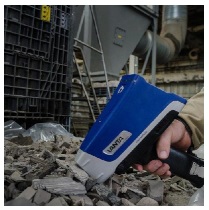TOLL REFINING - THE PRESENT AND THE FUTURE
POSTED BY MAXIME LE BRETON
Among the myriad of changes we have seen over the last 20 years in the catalytic converter recycling industry, one of the most influential has been toll refining.
Historically, the majority of sales by the scrap collector were unit-based and reliant on the trustworthiness of the buyer offering a “fair price”. And, of course, different buyers would invariably offer different prices for the same batch, based on their own knowledge (or lack of!), their own running costs and efficiencies and, ultimately what they think the seller will accept - thus, just adding to the confusion and lack of transparency in the industry.
One of the big problems is that there are so many variables with catalytic converters, and even the same model can command different prices depending on factors including mileage, age and condition of the scrap unit. Catalysts in any one batch will have been removed from different scrap vehicles and will have experienced different life spans - consider, for example, a catalytic converter taken from an “end-of-life” vehicle with one from a much newer vehicle that has been written off following an accident. Thus the make up of a load will always vary from that of a previous load. Without accurate assaying data it is nigh on impossible to determine the true value for any batch.
As well, of course, the market prices for platinum, palladium and rhodium can vary considerably over even a short period of time and will affect the value of every catalyst - and the buyer purchasing on a per-unit basis is unlikely to have up-to-date information on PGM prices
Toll Refining Transparency
Toll refining is a service provided by a recycler in which the scrap catalyst suppliers (scrapyards, auto recyclers, dismantlers and the like) contract the refining of the PGM (platinum, palladium and rhodium) for a fee, but the refined material remains under the suppliers’ ownership for final sale.
For this to be seen to be transparent and honest, it is necessary for the seller to have both knowledge and faith in the recycler’s methodology and processes. As we have mentioned before, the recycling process is complex, involving de-canning, milling, sampling, smelting and refining, and there are few companies that have the capabilities to meet all these needs. The sampling and assaying procedures - the ultimate means of determining the value of PGM content in any load - assumes very precise formulae are followed; incorrect formulation will lead to under- or over-valuation of the metal content. Thus, for the buyer, having a laboratory in not enough. Technical expertise together with modern XRF (X-Ray fluorescence) and ICP (inductive coupled plasma) analysis equipment are pre-requisites of professional assaying. The need for accuracy and transparency is crucial – the assaying company’s competitiveness, effectiveness and reputation for honesty are all at stake; to demonstrate this, reputable companies will encourage customers or their appointed agents to witness the processing, and will make samples available for independent analysis.
Toll Refining in Practice
Companies that buy based on toll refining will assess the value of a load of scrap catalysts by comparing the total weight of processed ceramic (following de-canning and crushing) with the laboratory analysis on a sample of that ceramic. There may be a very small margin for error, believed to be less than plus or minus 5%, but invariably the value of the precious metals assayed will be higher than that derived from serial numbers and grading. In the latter case, the company purchasing will always build in a “safety margin” to offset market fluctuations and the reliability of information.
Whilst, therefore, we firmly believe that professional toll refining is both the present and the future in the catalytic converter industry, we recommend careful evaluation of the companies offering the services. in order to ensure “best fit” is achieved.

























